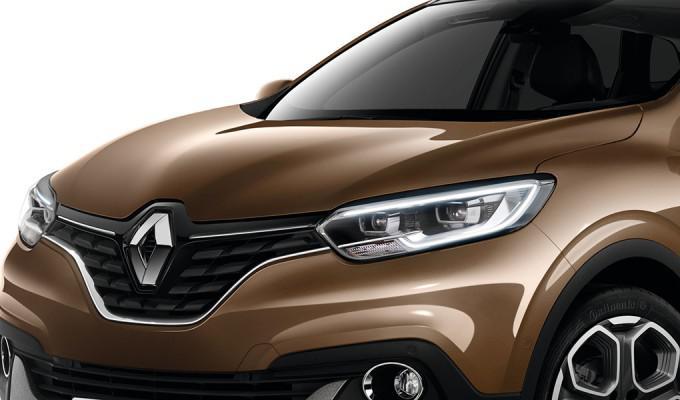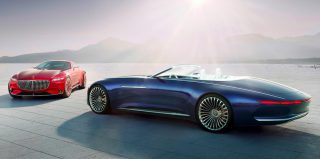Solar Panels and Electrical Cars: Can I Use Solar as an EV charger? Solar panels and electrified cars are a match made in heaven – when you install a solar energy system on your home, you can use it to both power your home and charge your electrified car for emissions-free transportation. The cost of […]
TechRadar
The future of cars goes into overdrive at CES 2017
The future of cars feels like it’s been coming forever, hasn’t it? By now you know the drill: concept exposed, crowd claps, then cloth is put back over prototype and it’s forgotten until the next time it’s flipped out on a big conference stage.
CES two thousand seventeen is different however. Yes, we’re being treated to those same kinds of seemingly improbable concepts – Toyota Concept-i, Chrysler Portal – and a production vehicle that may never see the open road (sorry, Faraday Future), but this time around, it feels like we’re ultimately getting a peek of our actual automotive future.
That future is a little bit scary, a little bit jarring, but CES is showcasing us that everyone from traditional auto makers to Amazon is thinking hard about where cars are headed, and all are working to get there swift.
None encapsulate this more than the Toyota Concept-i, a driverless car that, as TechRadar Senior Editor Joe Osborne put it, feels like you’re leaping ten years ahead when you hop inwards.
Concept-i looks like something out of Tron, but part of what makes Toyota’s car so intriguing is that it doesn’t leave behind the driver, despite being “driverless.” It keeps the gas and brake pedals, and amazingly, a steering wheel. Of course, there’s a a super-smart AI running through the entire vehicle.
Toyota may have struck the flawless balance inbetween the future (it has to recognize your palm print to commence, for example) and the natural need for drivers to feel like they are still in a car, not a pod they have no domain over. Trust me, that’s a panicking feeling.
Even family cars are getting their turn at CES, with Chrysler unveiling the Portal millennial-inspired minivan. It’s not entirely self-driving, but like Tesla, has semi-autonomous driving powers, which seem like the “just right” medium for consumers.
But it’s not just crazy cool concepts and entirely fresh autos like the FF ninety one wheeling around the Vegas tech extravaganza. There are smaller announcements circling the conference halls, more instant advancements that signal the future of cars is, in reality, happening right now.
Ford and Amazon have teamed up to bring the Alexa individual assistant to the auto maker’s wares, and kicking off later this month Ford owners can control their cars using an Amazon Echo, Echo Dot or Tap. This is the tightest integration of Alexa in cars yet, and by our very first impressions, hugely promising.
Google too is keeping up its car momentum, announcing this week that through Google Home, the Google Assistant can now communicate with any Hyundai vehicle.
And it doesn’t stop there: Cortana is carpooling with BMWs and Nissans, Microsoft has launched a Connected Vehicle Platform and Ford is trialling turning parking spaces into charging stations for electrical cars.
Not to be outdone, Nvidia also exposed it’s working with Audi to bring a driverless car to the road by 2020. Nvidia, a chip maker, has become one of the thickest proponents of self-driving cars, and regularly uses CES to discuss how it plans to bring autonomous driving to life.
The flashy concepts are what make us yearn for more, but it’s the integration of wise home technology, the commitment by non-car makers to convert transportation and the ever-strengthening connection inbetween mobiles and automobiles that are spinning the future of cars forward. CES two thousand seventeen is a showcase for all of these developments, and we’ve got a shotgun seat to the activity.
- Fresh year, fresh tech – check out all our coverage of CES two thousand seventeen straight from Las Vegas, the greatest gadget display on Earth
The future of cars goes into overdrive at CES 2017, TechRadar
TechRadar
The future of cars goes into overdrive at CES 2017
The future of cars feels like it’s been coming forever, hasn’t it? By now you know the drill: concept exposed, crowd claps, then cloth is put back over prototype and it’s forgotten until the next time it’s spinned out on a big conference stage.
CES two thousand seventeen is different tho’. Yes, we’re being treated to those same kinds of seemingly improbable concepts – Toyota Concept-i, Chrysler Portal – and a production vehicle that may never see the open road (sorry, Faraday Future), but this time around, it feels like we’re eventually getting a peek of our actual automotive future.
That future is a little bit scary, a little bit jarring, but CES is displaying us that everyone from traditional auto makers to Amazon is thinking hard about where cars are headed, and all are working to get there prompt.
None encapsulate this more than the Toyota Concept-i, a driverless car that, as TechRadar Senior Editor Joe Osborne put it, feels like you’re leaping ten years ahead when you hop inwards.
Concept-i looks like something out of Tron, but part of what makes Toyota’s car so intriguing is that it doesn’t leave behind the driver, despite being “driverless.” It keeps the gas and brake pedals, and amazingly, a steering wheel. Of course, there’s a a super-smart AI running through the entire vehicle.
Toyota may have struck the flawless balance inbetween the future (it has to recognize your palm print to begin, for example) and the natural need for drivers to feel like they are still in a car, not a pod they have no domain over. Trust me, that’s a panicking feeling.
Even family cars are getting their turn at CES, with Chrysler unveiling the Portal millennial-inspired minivan. It’s not entirely self-driving, but like Tesla, has semi-autonomous driving powers, which seem like the “just right” medium for consumers.
But it’s not just crazy cool concepts and entirely fresh autos like the FF ninety one wheeling around the Vegas tech extravaganza. There are smaller announcements circling the conference halls, more instantaneous advancements that signal the future of cars is, in reality, happening right now.
Ford and Amazon have teamed up to bring the Alexa individual assistant to the auto maker’s wares, and commencing later this month Ford owners can control their cars using an Amazon Echo, Echo Dot or Tap. This is the tightest integration of Alexa in cars yet, and by our very first impressions, hugely promising.
Google too is keeping up its car momentum, announcing this week that through Google Home, the Google Assistant can now communicate with any Hyundai vehicle.
And it doesn’t stop there: Cortana is carpooling with BMWs and Nissans, Microsoft has launched a Connected Vehicle Platform and Ford is trialling turning parking spaces into charging stations for electrical cars.
Not to be outdone, Nvidia also exposed it’s working with Audi to bring a driverless car to the road by 2020. Nvidia, a chip maker, has become one of the largest proponents of self-driving cars, and regularly uses CES to discuss how it plans to bring autonomous driving to life.
The flashy concepts are what make us yearn for more, but it’s the integration of wise home technology, the commitment by non-car makers to convert transportation and the ever-strengthening connection inbetween mobiles and automobiles that are spinning the future of cars forward. CES two thousand seventeen is a showcase for all of these developments, and we’ve got a shotgun seat to the act.
- Fresh year, fresh tech – check out all our coverage of CES two thousand seventeen straight from Las Vegas, the greatest gadget display on Earth



